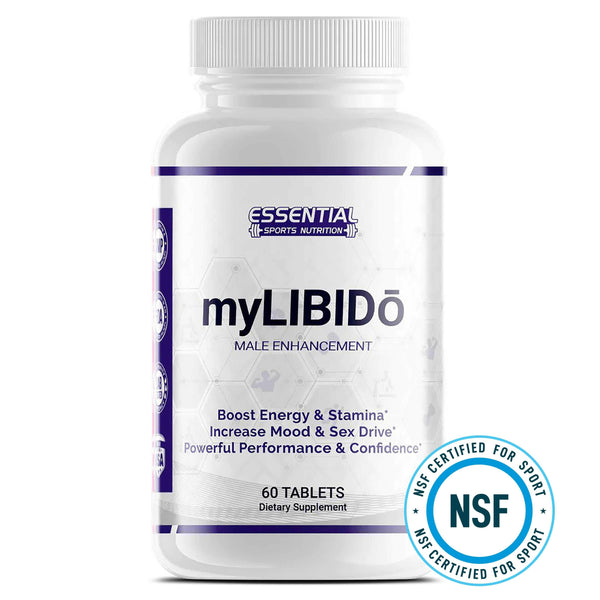Seasonal Nutrition: The Right Time of Year for Each Fruit & Vegetable
Are you tired of bland vegetables that don't seem to pack much nutrition? Many people struggle with choosing the right veggies that offer both great taste and health benefits. If you're looking for a way to boost your diet with more vitamins, eating seasonal produce might be the answer.
Seasonal vegetables are harvested at their peak, ensuring they are rich in nutrients and full of flavor. This article will guide you through some of the healthiest seasonal vegetables packed with vitamins.
Ready to find out which veggies can brighten up your meals while keeping you healthy?

Key Takeaways
- Eating seasonal vegetables ensures higher nutrient content and better flavor. For example, asparagus in spring provides vitamin K and folate.
- Seasonal produce supports local farmers and reduces pollution due to shorter travel distances from farm to table.
- Spring's veggies like spinach offer iron and magnesium; summer’s tomatoes give vitamin C; fall’s pumpkins are rich in vitamins A and C, while winter's sweet potatoes boast high beta-carotene turning into vitamin A.
- Local seasonal choices such as zucchini can aid digestion with dietary fiber or improve heart health with potassium found in tomatoes.
Benefits of Choosing Seasonal Vegetables

Seasonal vegetables taste fresher and better. They also have more nutrients packed into them.
Higher nutrient content
Eating seasonal vegetables provides higher nutrient content. For example, fresh apples are rich in antioxidants and fiber. Spinach offers high levels of iron and magnesium when eaten in season.
These nutrients support strong bodies and improve overall health.
Local produce is often picked at peak ripeness, which means more vitamins and minerals are preserved. Eating asparagus in the spring ensures you get plenty of vitamin K and folate.
Opting for pumpkins in fall loads your diet with vitamins A and C. Freshly harvested foods like these guarantee better nutrition from every bite.
Better flavor and freshness
Seasonal produce is picked at peak flavor. This means it tastes better than out-of-season items. Fresh fruits and vegetables have more natural sweetness and a crisp texture.
Local seasonal produce travels shorter distances to reach you. This cuts down on the time from farm to table, keeping it fresher. Fresher foods retain their vitamins and other nutrients longer.
Eating seasonally supports local farmers too! Buying what’s in season helps small farms stay afloat. Plus, you get the benefit of tastier food that your body will love.
Spring's Super Veggies

Spring brings a bounty of fresh vegetables. Enjoy these vibrant veggies packed with essential vitamins and minerals.
Asparagus: Rich in vitamin K and folate
Asparagus boasts high levels of vitamin K and folate, making it a powerhouse vegetable. The thinnest stalks are the most tender and delicious. This veggie not only enhances flavor but also supports your health.
Vitamin K is crucial for blood clotting, while folate aids in cell growth.
Eating asparagus can be environmentally friendly too. It reduces water and land use as well as pollution. Including it in your diet ensures you get an excellent source of nutrients with minimal environmental impact.
Enjoy this green gem roasted, steamed, or added to salads for a nutritious boost!
Spinach: High in iron and magnesium
Spinach is packed with iron and magnesium. These minerals help keep your body strong. Iron boosts energy by improving red blood cell counts. Magnesium supports muscle and nerve function.
Spring is the best time to pick spinach. It tastes fresher in this season, locking in more flavor and nutrients. Buying locally grown spinach also helps support local farmers.
Eating spinach regularly can improve overall health. Adding it to salads or smoothies makes a quick, nutritious meal. Spinach’s benefits are hard to beat with its high vitamin content.
Summer's Nutritional Powerhouses

Summer brings an array of vibrant vegetables to your table. These veggies are packed with essential nutrients and vitamins for a healthy diet.
Tomatoes: Loaded with vitamin C and lycopene
Tomatoes boost your health with their high vitamin C content. This vitamin strengthens the immune system and helps repair body tissues. Besides, tomatoes contain lycopene, which may reduce the risk of certain cancers and heart diseases.
These vibrant fruits are also good sources of fiber and potassium. Eating them can improve digestion and regulate blood pressure. Enjoy tomatoes in salads, sauces, or even raw for a nutritious punch all summer long!
Zucchini: Good source of manganese and dietary fiber
Zucchini is packed with manganese, which helps keep bones strong and supports metabolism. Eating zucchini also provides dietary fiber, aiding in digestion and promoting fullness. This makes zucchini a healthy choice for those looking to improve their gut health.
Incorporating seasonal vegetables like zucchini into your diet can boost overall well-being. Make the most of summer by savoring fresh produce from your local food system. Zucchini is versatile: grill it, stir-fry it, or eat it raw in salads.
It’s an easy way to meet your daily nutritional needs while enjoying delicious meals.
Fall Favorites for Health

Fall brings many nutritious vegetables. Enjoy vibrant and tasty produce that boosts your well-being.
Pumpkins: Packed with vitamins A and C
Pumpkins are rich in vitamins A and C. These nutrients help keep eyes healthy and boost the immune system. Pumpkins also contain fiber, which aids digestion, and beta-carotene, an antioxidant that may reduce cancer risk.
Magnesium and potassium found in pumpkins support heart health.
Eating seasonal produce like pumpkins can save money. This is because they are abundant during the fall season. Their natural sweetness makes them perfect for soups, pies, or roasted dishes.
Including pumpkin in your diet adds flavor while providing essential nutrients for overall well-being.
Kale: Dense in vitamins K, A, and C, and calcium
Kale overflows with vitamins K, A, and C. Vitamin K helps bones stay strong and supports blood clotting. With vitamin A packed in each leaf, kale aids vision, skin health, and the immune system.
This leafy green plant is rich in calcium too. Calcium keeps your bones and teeth sturdy. The high amount of vitamin C in kale acts as a powerful antioxidant that boosts the immune system and shields cells from damage.
Eating seasonally means you can find fresh kale at its peak flavor and nutrients in the fall months!
Winter Wellness Vegetables

Winter brings a variety of nutrient-rich vegetables. Eating these can boost your health during the cold months.
Broccoli: Great for vitamins K and C
Broccoli is packed with vitamins K and C. Vitamin K in broccoli helps your blood clot properly when you have a cut. It also keeps your bones strong and healthy. Eating foods rich in vitamin K can reduce the risk of fractures.
Vitamin C in broccoli supports the immune system, helping to fight off colds and infections. It also promotes good skin health by aiding collagen production. Including broccoli in your winter diet boosts both immunity and overall wellness.
This leafy green vegetable is one of the healthiest vegetables available during winter months. It's versatile too; enjoy it raw, steamed, or roasted for different flavors while still getting its full benefits.
Sweet Potatoes: High in vitamin A and beta-carotene
Sweet potatoes come in orange, white, and purple varieties. They are rich in beta-carotene, which converts to vitamin A in the body. This helps keep your vision sharp and boosts your immune system.
These root vegetables also have a lot of fiber and antioxidants. The fiber supports healthy digestion, while the antioxidants protect cells from damage. Eating them during winter also helps support the local economy by buying seasonal produce.
Baking or roasting sweet potatoes brings out their natural sweetness. You can mash them for a creamy side dish or slice them for crispy fries. They are versatile and packed with nutrients that benefit overall health.
Conclusion
Eating seasonal vegetables can boost health. Asparagus and spinach in spring offer vital nutrients like vitamin K and iron. Summer vegetables like tomatoes provide vitamin C, while zucchini gives fiber.
Pumpkins in fall are rich in vitamins A and C; kale offers calcium too. Broccoli and sweet potatoes in winter bring high levels of vitamins K, C, and A.
Choosing these fresh options supports local farms and reduces pollution.
Seasonal Eating FAQs
Q: What are the benefits of eating seasonal produce?
A: Eating seasonal produce provides fresh and nutritious fruits and vegetables, which can improve health and well-being.
Q: Why should I eat a variety of vegetables year-round?
A: Eating a variety of vegetables year-round ensures you get different vitamins like C and K from sources such as cauliflower, carrots, and Brussels sprouts.
Q: How do I find out what foods are in season?
A: A seasonal food guide helps you find fresh produce that is ready to eat during each season.
Q: Can eating seasonally help reduce my grocery bill?
A: Yes, buying in-season fruits and veggies often costs less because they are abundant at those times.
Q: Which vegetables are good sources of vitamins C and K?
A: Vegetables like broccoli, kale, cabbage, cauliflower, collard greens provide high levels of vitamins C and K.
Q: Does eating seasonally help with food safety?
A: Yes! Eating foods grown in their natural season reduces the risk associated with out-of-season produce that may rely on more chemicals for growth or preservation.
Q: What are the top healthiest vegetables to include in your diet?
A: Some of the top healthiest vegetables to include in your diet are cauliflower, brussels sprouts, onions, and other allium vegetables. These vegetables are packed with essential nutrients and vitamins.
Q: How can seasonal produce benefit my health?
A: Seasonal produce is fresher, more flavorful, and higher in nutrients compared to out-of-season produce. Eating seasonal fruits and vegetables can provide your body with a variety of vitamins, minerals, and antioxidants.
Q: Why should I consider buying local produce?
A: Buying local produce supports local farmers, reduces carbon footprint from transportation, and ensures that you are getting the freshest produce available. Local produce is also likely to be more sustainable and environmentally friendly.
Q: Are strawberries considered a seasonal food?
A: Yes, strawberries are a seasonal fruit that are typically available during the spring and summer months. They are rich in vitamin C, fiber, and antioxidants, making them a nutritious addition to your diet.
Q: What are the benefits of consuming fruits and vegetables that are in season?
A: Consuming fruits and vegetables that are in season ensures that you are getting the freshest and most nutrient-dense produce available. Seasonal produce is also more cost-effective and supports local agriculture.
Q: Can I eat seasonal vegetables raw?
A: Yes, many seasonal vegetables can be eaten raw, such as carrots, cucumbers, and bell peppers. Eating vegetables raw preserves their nutrients and provides a refreshing and crunchy texture.
Q: How can I find a seasonal food guide to help me choose the best produce?
A: You can look for a seasonal produce guide online or visit your local farmer's market for information on what fruits and vegetables are currently in season. These guides can help you make informed choices when selecting produce.




























